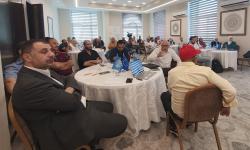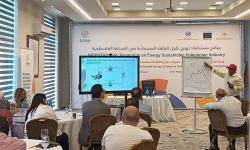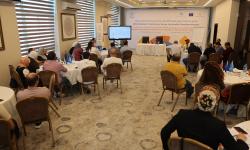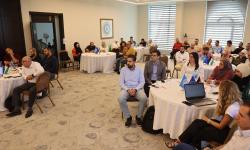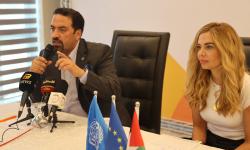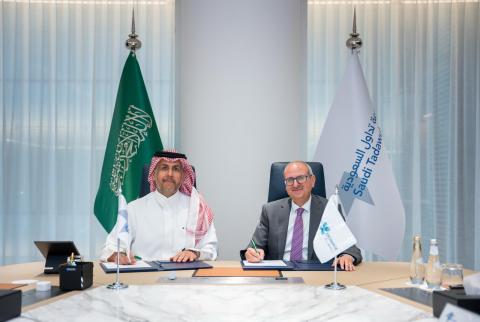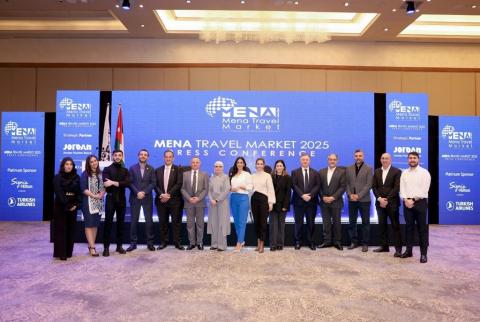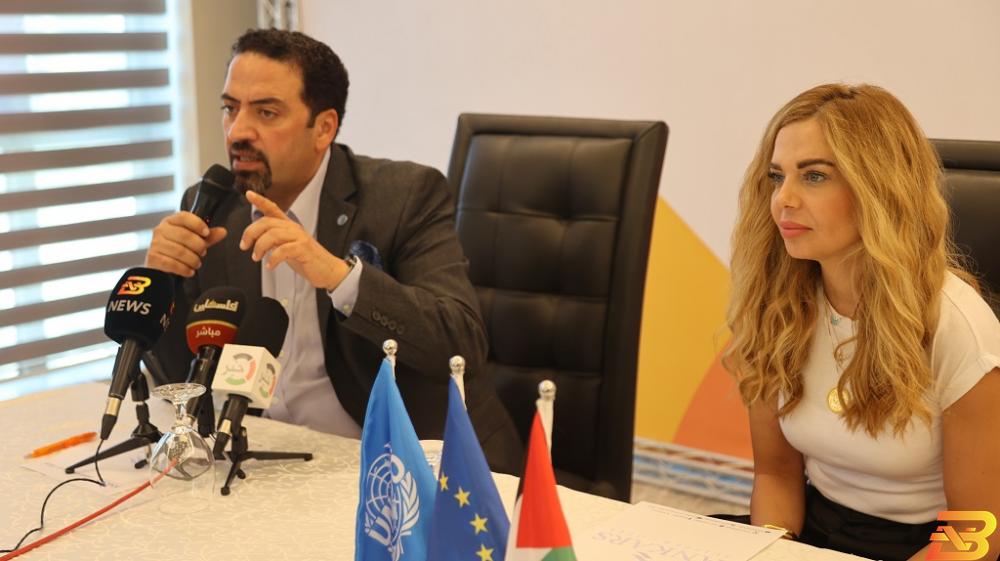
Ramallah-(BNEWS)- The United Nations Industrial Development Organization (UNIDO)’s MOUSTADAMA Programme engaged its stakeholders in a training workshop aimed at promoting and accelerating the adoption of sustainable energy solutions in Palestinian industry.
The event brought together the key public and private players involved in energy-related issues in Palestine, including representatives from the Ministry of National Economy (MoNE), the Palestinian Energy and Natural Resources Authority (PENRA), the Palestine Electricity Regulatory Council (PERC), the Ministry of Local Government, the Palestine Standard Institution (PSI), the Investment Promotion and Industrial Estate Agency (IPIEA), DISCOs (Distribution Companies), the Palestinian Federation of Renewable Energy, the Palestinian Solar and Sustainable Energy Society, and an array of private sector enterprises.
Comprising a comprehensive agenda, the workshop encompassed three vital themes relevant to energy and its industrial applications. The inaugural segment delved into the crux of net metering, along with enforcement and monitoring in the industrial sector, and explored its global implementations.
The second topic transitioned into Battery Storage Technologies for Solar PV Projects, enabling participants to navigate cutting-edge storage systems and their potential to drive solar energy utilization, particularly in the industrial sector.
The third topic focused on the rules, regulations, and business models governing Energy Services Companies (ESCOs), providing participants with insights into the relevant contractual frameworks.
The training was delivered by international experts with the necessary skills and in-depth understanding of the Palestinian energy sector. The curriculum was carefully tailored based on analysis conducted to promote sustainable energy practices within the industrial landscape.
Ahmed ElFarra, UNIDO Senior Programme Officer and Programme Manager of MOUSTADAMA, stressed that the enforcement of the regulatory system is crucial to the development of Palestinian industry and its decarbonization.
“Net metering regulations for the industrial sector have a pivotal role in steering our energy landscape toward environmental sustainability while fostering economic growth”, he stated.
By enabling industries to both consume and generate renewable energy, these regulations enable companies to actively contribute to the transition to cleaner energy sources and to protect the environment and the communities in which they operate, for the benefit of present and future generations. At the same time, the impact on economic growth should not be underestimated. The win-win formula is often misquoted, but I think it is more than appropriate in this case: the transition to green energy will not only help our industry to decarbonise, but it will also make it stronger and more competitive because it will be less dependent on energy imports”, he continued.
Khader Daraghmeh, Director General of the Industry & Nature Resources Directorate at MoNE, emphasized the role of net metering in establishing decentralized energy networks that prioritize clean energy sources for their operations.
“Net metering regulations tailored to the industrial sector are critical to advancing sustainability goals. By empowering industry to actively contribute to the clean energy transition, these regulations uphold the dual principles of environmental responsibility and economic progress, ensuring a cleaner, more resilient industrial development. Through net metering, we will be able to mitigate climate change by reducing the pressure on our natural resources. At the same time, the adoption of net metering will not only lead to job creation within the industrial energy sector, but will enable our industries to decrease the huge energy costs that now stifle its growth, thus becoming more competitive”, he stated.
